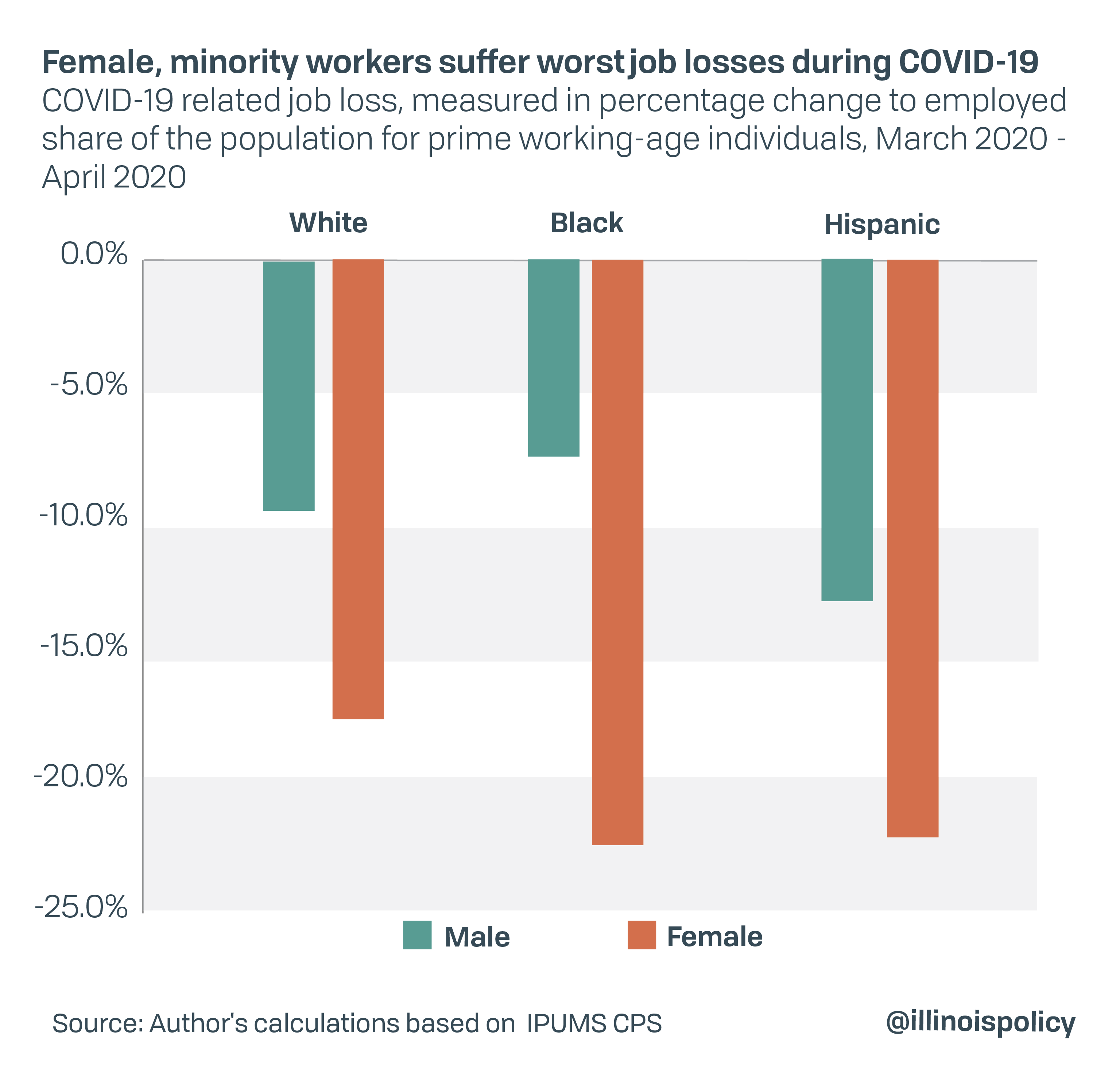CHICAGO (June 4, 2020) – Women and minorities have been disproportionately hurt by job losses in Illinois since the start of the pandemic, exacerbating employment disparities that have existed for decades, according to
new research from the nonpartisan Illinois Policy Institute. Black and Hispanic women suffered the most, with more than one out of every five losing her job in April alone.
The Institute’s analysis shows the employment gap between white and Hispanic workers increased by 35.5% during the first month of Illinois’ stay-at-home order. Women, no matter their race or ethnicity, suffered a 74% sharper decline in employment than men, marking the largest job losses in the state. Nearly all of these changes are directly attributable to the drop in economic activity that followed the state’s stay-at-home order.
This comes as Illinois’ real-time unemployment rate reached 23.85%. U.S. Department of Labor data show 46,522 Illinoisans filed for unemployment in the week ending May 30.
In the first month of Illinois’ shutdown, experts found:
- Black women and Hispanic women in Illinois experienced the largest employment declines of 22% each. Hispanic men experienced a 13% employment decline.
- White women in Illinois experienced the third-largest employment decline at 18%. White men experienced a 10% employment decline.
- Black men in Illinois experienced a nearly 8% employment decline. While black men have experienced the least job loss since the start of the stay-at-home order, they had already suffered the heaviest job losses in the last year prior to the statewide shutdown, resulting in the lowest employment levels of any race or ethnicity.
- Experts found workers in jobs deemed “non-essential” lost jobs at a higher rate, as less than half of U.S. jobs can be performed entirely at home.
- Workers who can’t work from home are less likely to be white, less likely to have a college degree, or have employer-provided health care. They are also more likely to be in the bottom half of the income distribution.

Orphe Divounguy, chief economist at the nonpartisan Illinois Policy Institute, offered the following statement:
“We’ve heard the cries in the streets of Chicago calling for an end to injustice. Minority communities not only face unequal treatment from law enforcement, but also from government policies that can exacerbate the gap in employment with their white peers. This gap was already widening throughout 2019 and was made far worse by the state’s handling of the COVID-19 pandemic.
“A worker’s occupation really matters in a pandemic. State governors arbitrarily deemed entire industries ‘essential’ and the rest ‘non-essential.’ The results of these decisions in Illinois cost women and minorities their jobs far more than others.
“A large proportion of black and Hispanic workers in Illinois held jobs deemed ‘non-essential,’ with the only reprieve being for those who were working on the front lines. Workers in jobs and industries deemed non-essential were unfairly harmed, and it will take years for many of these families to recover.”
To read more about how the COVID-19 pandemic has affected Illinois workers, visit:
illin.is/womenjobs.
For bookings or interviews, contact media@illinoispolicy.org or (312) 607-4977.